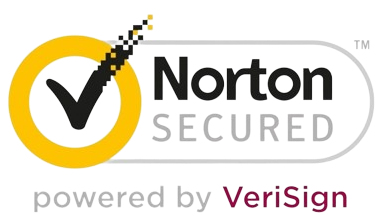Learning a new language is an exciting journey, and for many, the question of how long it can take to learn Irish is a common one. The time it takes to become proficient in Irish varies significantly based on several factors, including your previous language experience, the amount of time you dedicate to studying, and the methods you use. In this article, we will explore these aspects in detail, providing insights and resources to help you on your path to mastering the Irish language.
Understanding Language Proficiency Levels
Before diving into timelines, it’s essential to understand the different proficiency levels defined by the Common European Framework of Reference for Languages (CEFR). These levels range from A1 (beginner) to C2 (proficient), and each level requires a specific amount of study hours:
- A1 Beginner: Approximately 80-100 hours of study.
- A2 Elementary: An additional 160-200 hours after reaching A1.
- B1 Intermediate: An additional 350-400 hours after reaching A2.
- B2 Upper Intermediate: An additional 500-600 hours after reaching B1.
- C1 Advanced: An additional 1,000 hours after reaching B2.
These estimates provide a rough guideline for learners, but individual experiences may vary.
Factors Influencing Learning Time
1. Learning Environment
Your learning environment plays a crucial role in how quickly you can learn Irish. Immersive experiences, such as living in an Irish-speaking community or participating in language immersion programs, can significantly accelerate your learning process. Conversely, learning in a non-immersive environment may extend the time required to reach fluency.
2. Study Methods
The methods you choose for studying Irish can also impact your learning speed. Here are some effective strategies:
- Online Courses: Platforms like Gaeilgeoir AI offer structured courses that cater to various proficiency levels.
- Language Apps: Apps such as Duolingo and Memrise make learning interactive and fun.
- Practice Speaking: Engaging in conversations with native speakers or fellow learners helps reinforce your skills.
3. Consistency and Dedication
Regular practice is key to language acquisition. Setting aside time each day or week for focused study will yield better results than sporadic efforts. Aim for at least 30 minutes of active learning daily to see consistent progress.
Estimated Timelines for Learning Irish
While individual experiences will differ, here’s a general timeline based on consistent study:
- Basic Conversational Skills (A1-A2): 3-6 months with daily practice.
- Intermediate Proficiency (B1): 6 months to 1 year of dedicated study.
- Advanced Proficiency (B2-C1): 1-3 years depending on immersion and practice opportunities.
These timelines are estimates; some learners may progress faster or slower based on their unique circumstances.
Resources for Learning Irish
To aid your journey in learning Irish, consider utilizing various resources:
Online Courses
Gaeilgeoir AI provides a range of online courses tailored for different levels of learners. You can explore their offerings here.
Language Apps
Apps like Duolingo and Babbel offer engaging ways to practice vocabulary and grammar on the go.
Community Engagement
Joining online forums or local language groups can provide support and motivation as you learn.
External Resources
For more comprehensive insights into learning Irish and available resources, check out LetsLearnIrish.com, which provides valuable information about proficiency levels and study recommendations.
Tips for Accelerating Your Learning
Here are some practical tips to help you learn Irish more efficiently:
- Set Clear Goals: Define what you want to achieve with your Irish language skills—whether it’s basic conversation or full fluency.
- Immerse Yourself: Surround yourself with the language through music, podcasts, movies, and books in Irish.
- Practice Regularly: Consistency is crucial; try to speak or write in Irish every day.
- Use Flashcards: Tools like flashcards can help reinforce vocabulary retention.
- Be Patient: Language learning is a marathon, not a sprint. Celebrate small victories along the way.
Conclusion
In conclusion, while the question of how long it can take to learn Irish depends on various factors such as your dedication, chosen methods, and immersion opportunities, it’s clear that with consistent effort and the right resources, anyone can make significant progress. Whether you’re starting from scratch or looking to improve your existing skills, embracing the journey of learning Irish can be incredibly rewarding.
Ready to embark on your own journey? Sign up for a free trial of Gaeilgeoir AI’s platform today and join a community of passionate learners just like you!


